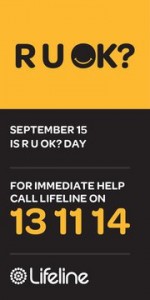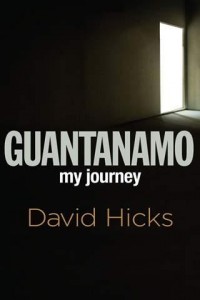Q&A: It is my biblical understanding that a person who is to be baptised is first to be a believer… Can you please comment?
 Anonymous asks:
Anonymous asks:
It is my biblical understanding that a person who is to be baptised is first to be a believer. Of their own free will they are to receive Jesus Christ as their personal saviour – A faithful, cognitive act.
Some churches conduct baby baptisms and, although the church admits that the baby is not consciously choosing Jesus Christ as their personal saviour, they claim that the baby is being baptised into the faith of his or her parents. I believe this is not a biblical truth, but rather a man made tradition.
Can you please comment?
Thanks
ps – not to be confused with dedications.
Thanks for the question – happy to respond. The one caveat being is that the whole infant-baptism/adult-baptism debate is long, emotive and the most constructive response at the end is usually to agree to disagree. This is true simply because Scripture does not have a clear definitive proscription or prescription for infant baptism. For every verse that people point out emphasising baptism in the context of individual faith and post-conversion, you can find one that alludes to baptism in a covenantal context in which there are allusions to whole households being baptised etc. etc.
So I disagree with your biblical truth / man-made tradition comment. The scholarly considerations simply do not allow this distinction to be drawn, one way or the other.
I ascribe to and practice the baptism of infants. I was baptised as a child (also subsequently baptised in the Baptist Church in my teen years when I wanted to make my own confession (confirmation?) of faith and I was part of that community). My children were baptised as infants.
There are number of aspects to this issue that I believe provides a framework that is thoroughly consistent with Scripture. I can’t be exhaustive, or even thorough here, but here are some brief thoughts.
1) The primary agency in baptism.
Historically (man-made tradition?) the primary agency was perceived to be the church. Hence the popularisms of being “baptised Catholic” or “baptised Anglican.” Such a view embraces infant baptism as a way of including children in the right ecclesio-sociological fold. When people feel a need to confront infant baptism it is usually a confrontation with this framework. I do not subscribe to it.
A popular view these days is that the primary agency is the baptisee. In other words, a person comes to faith and therefore expresses that faith by being baptised. Baptism is therefore a symbolic act on the part of the new believer. This view requires a believers baptism stance but not necessarily vice versa. A danger with this view of agency is that it can become highly individualistic. I know of people, who struggling with a recurring struggle against sins or addictions, have been baptised a number of times as they respond to their series of “backslidings.” I do not subscribe to this framework.
For me the primary agency in baptism is God. In baptism, through the church and the witness of faith, by the Spirit of God someone is signed and sealed into the body of Christ, the people of grace. It is an act of covenantal obedience where that covenant is applied in some sense. This is not incompatible with infant baptism.
2) What happens at baptism?
There is the wide spectrum, of course, between baptism-is-completely-and-utterly-salvific to baptism-is-a-nice-but-not-necessary-witness-of-salvation. I hold that baptism does do something. It certainly has a dedicatory effect – the person is signed and sealed for salvation and membership of God’s people. And it also has a sacramental effect – a means of grace by which a person who continues strong in the faith can be considered to be walking in the grace of their baptism. It is something by which we are able to say, and hold onto the truth of: “I am a baptised person. By grace I am dead to all but alive to him. I belong to Christ, I am marked as his.”
This is not incompatible with infant baptism.
3) Who exercises the faith?
You rightly point out that infant baptism relies on what is sometimes called “vicarious” faith. The parents exercise faith on their child’s behalf. While this may seem strange to some I do not think so for a number of reasons.
a) It matches a covenantal view of baptism. In the spirit of “As for me and my house we will serve the Lord.”
b) It is actually an ordinary thing to do. After all Christian parents exercise faith on behalf of their children all the time. They pray for them and with them – encouraging them to say Amen, or more, at the family table; teaching them to tithe their pocket money etc. etc.
c) Except in the case of baptism following clear adult conversion it is something that happens anyway. For instance, those who hold to believer’s baptism must have a view on when a child’s decision to follow Christ is “adult enough.” At what age is the child’s faith completely theirs and not their parents? What is the right way to respond to age-appropriate faith? I would argue that age-appropriate faith for an infant is complete dependency on their parents’!
4) As some have asked – is a child “a pagan in need of converting or a Christian in need of nurturing?”
Not sure if I like that popular phrasing. But it gets the point across. If I consider my child to be a part of the church, covered by God’s grace, and endeavour to help them walk in this light – I cannot see baptism as askance to that. Free will is not taken away – they may choose to continue to walk in that grace, or, as an adult, to leave the fold. But while I am answerable to God for their wellbeing I will look to them to walk under his grace.
Like I said, in the end, this is one of those agree-to-disagree questions. It is something I have wrestled with personally and have arrived at these conclusions. After all “Let the little children come unto me…” sounds more like the gospel than “wait until you’re old enough” and, in the end, even for adults, it is only those who are like children to God who can enter his kingdom.
God bless.




